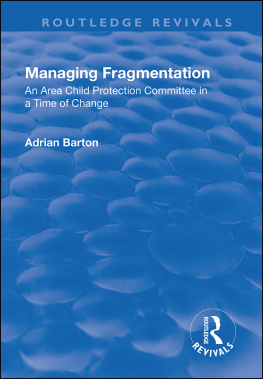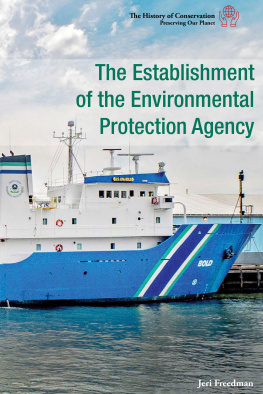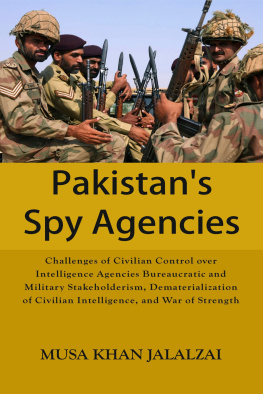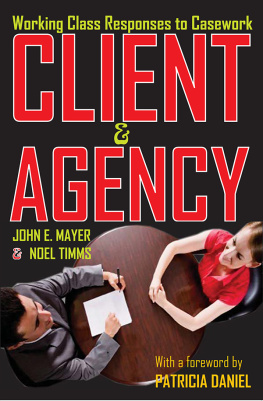MANAGING FRAGMENTATION
WELFARE AND SOCIETY STUDIES IN WELFARE POLICY, PRACTICE AND THEORY
Series Editors:
Matthew Colton, Kevin Haines, Tim Stainton and Anthea Symonds
School of Social Sciences and International Development,
University of Wales Swansea
Welfare and Society is an exciting series from the University of Wales Swansea, School of Social Sciences and International Development in conjunction with Ashgate, concerned with all aspects of social welfare. The series publishes works of research, theory, history and practice from a wide range of contemporary applied social studies subjects such as Criminal Justice, Child Welfare, Community Care, Race and Ethnicity, Therapeutic and Intervention Techniques, Community Development and Social Policy. The series includes extended research reports of scholarly interest as well as works aimed at both the academic and professional communities.
Managing Fragmentation
An Area Child Protection Committee in a time of change
ADRIAN BARTON
University of Plymouth
First published 2002 by Ashgate Publishing
Reissued 2018 by Routledge
2 Park Square, Milton Park, Abingdon, Oxon OX14 4RN
711 Third Avenue, New York, NY 10017, USA
Routledge is an imprint of the Taylor & Francis Group, an informa business
Copyright Adrian Barton 2002
The author has asserted his moral right under the Copyright, Designs and Patents Act, 1988, to be identified as the author of this work.
All rights reserved. No part of this book may be reprinted or reproduced or utilised in any form or by any electronic, mechanical, or other means, now known or hereafter invented, including photocopying and recording, or in any information storage or retrieval system, without permission in writing from the publishers.
Notice:
Product or corporate names may be trademarks or registered trademarks, and are used only for identification and explanation without intent to infringe.
Publishers Note
The publisher has gone to great lengths to ensure the quality of this reprint but points out that some imperfections in the original copies may be apparent.
Disclaimer
The publisher has made every effort to trace copyright holders and welcomes correspondence from those they have been unable to contact.
A Library of Congress record exists under LC control number: 2001099959
ISBN 13: 978-1-138-73320-6 (hbk)
ISBN 13: 978-1-315-18841-6 (ebk)
Contents
Certain social groups and certain types of social problems have long been the focus of welfare delivery. However, whilst some target groups remain constant, the process by which welfare has been delivered has altered and developed in line with the changing nature of organisational discourses. Whilst some forms of welfare, such as education, can be identified as the responsibility of a single agency, some forms of welfare require an approach which involves a number of different agencies working together. Unfortunately, although the need for diffuse agencies to work together has been recognised since at least the 1860s by organisations such as the Charity Organisation Society (Thane 1982), and government reports such as the Seebhom Report (1968), the agencies charged with delivering welfare within partnership forums have often found this approach to work problematic.
The reasons for this are varied. The problems emerge partly because agencies have been jealous guardians of their domain of expertise, especially since the professionalisation process inherent in the formation of the Keynesian-Beveridge inspired welfare state. Other reasons can be seen to be more technical in nature and revolve around such concepts as differing sets of standard operating procedures, organisational and work place culture and world views. Yet more pressures emerge because it is often unclear to the recipients of welfare where exactly they need to turn to receive their desired input. The result is often that partnership forums, where a number of different welfare agencies come together to address a social problem, become sites of conflict, creating problems for organisation, worker, and client alike.
Despite this, the calls for, and faith in, partnership working has remained constant for a number of years. Indeed, partnership working is so much in the ascendancy at present that it is difficult for professionals to instigate new projects without building into them some element of partnership, and government ministers from almost all departments sing the praises of joined-up working. Moreover, such is the strength of the partnership discourse that it has managed to remain a dominant feature throughout a fundamental period of change for welfare organisations.
Specifically, this change to state welfare agencies revolves around the adoption of a new organisational discourse. Politically, a situation has emerged where welfare agencies have been forced to into abandoning the bureau-professional organisational model, which can be seen to be their traditional method of organisational structure and control, for a model known as New Public Management (NPM) (Clarke and Newman 1997). Essentially, NPM asks welfare agencies to adopt a more business like attitude to work tasks and client relationships. It also places accountability on a more contractual and calculative footing, as opposed to the explanatory accountability inherent within the bureau-professional model (Reiner and Spencer 1993). The result of the move to NPM has been to create a situation which has been described as a period of constant revolution (Clarke and Langan 1997). Agencies have been asked to reassess their role, identify and work toward core tasks, and work toward an audit based approach to evaluating their work in terms of success and economy. In turn, this has seen all the major providers of (broadly defined) welfare suffer periods of upheaval and re-structuring. This has had implications intra-agency, but it also does not take a great leap of logic to see the introduction of NPM will affect inter-agency relationships.
Essentially, this is the contention at the heart of this book. As the work unfolds it will argue that the demands of the discourse of NPM have altered the manner in which agencies view themselves, their partners and their work. Accordingly, these altered perceptions have filtered into partnership forums and have been at least partially responsible for disrupting the status quo, thus disrupting the structure and formation of partnerships as well as undermining existing control mechanisms within partnership forums. Further, periods of intra-agency instability, evident in most welfare providers following the introduction of NPM, will have an accompanying affect on the stability of joint working.
For the academic, the confused medium that is partnership working offers a number of exciting possibilities. For example, it is possible to examine the problems have in negotiating areas where more than one agencies is involved. Similarly, exploration of the problems encountered by front-line workers when confronted by their counterparts in other agencies could be selected as an area of interest. Equally, research could focus on a higher level of partnership working and concentrate on the problems managers have in formulating and implementing strategic policy, inter-agency. This book concentrates on the latter.
The setting for the work, as made explicit in the sub-title, is an Area Child Protection Committee (ACPC). Given that the central concern of the book is an exploration of the interface between intra-organisational change and inter-organisational working relationships it was vital that the empirical focus of this project provided access to an area where a variety of agencies came together. Child protection is, perhaps, the optimum example of this. The primary reason child protection draws together so many different welfare agencies can be located in the major structural changes in the child protection system, which took place during the mid-1970s. As detailed below, partnerships in child protection assumed such great importance that they became mandated, forcing agencies to become partners, however reluctant they may have been to share work and responsibility with others.







